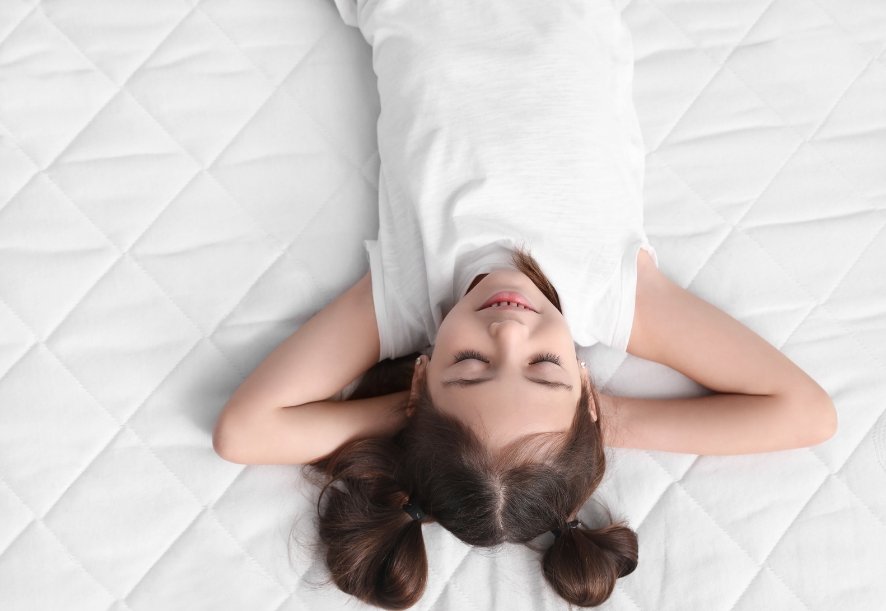How Do Elite Athletes Sleep?

How Do Elite Athletes Sleep?
Athletes need to sleep, in order to keep up the pace. Elite athletes are no exception: how they get their rest is vital for performance and recovery. They have different needs than most people though because as elite athletes they don't just compete on game day but many days each week!
The sleeping habits of our nation's top performers may be a surprise- some go with less sleep while others prefer more time under the covers! This article takes you through what every athlete should know about getting enough shut eye.
Athletes of all levels and abilities are searching for ways to improve their performance. Everybody knows that an athlete needs a good night's sleep, but how many hours is enough? It varies depending on the intensity of your training regimen; there isn't one set rule as far as time goes."
"It’s been said that a lack in rest can lead you down the path towards obesity or just plain feeling lousy," says Dr. Crenshaw from UCLA Medical Center Sleep Disorders Unit. "Many athletes also report having more energy during competitions after they have adequate amounts of quality sleep before competition day--even if it means getting up early!"
Some say that athletes might need more sleep than the average person. However, it is not yet determined if this will make them perform better or worse in their respective sport because there are many factors to take into account such as what position they play on a team and how physically demanding each sport may be for different people.
Doctors and healthcare specialists working with Olympic athletes all agree: Sleep is absolutely vital if they’re to perform at their peak. The connection between how well-rested an athlete is and physical performance has been undisputed since ancient times when Aristotle said "nature does nothing without purpose." When we're asleep our bodies repair muscle tissue, top up stamina levels, help us regain general alertness.
Sleep routines are great for getting in shape, because regular sleeping habits make it easier to exercise.
It's a tough life for triathletes, pushing their bodies to the limit over extended periods of time. How do they ensure that they get enough rest? A study found some patterns in how professional triathletes deal with this issue: many try and stay on an even sleep schedule every day-- whether it be resting or training! They also tend to follow a set bedtime routine each night rather than going by what feels right at the moment.
Sleep is important for the success of athletes because it improves their ability to learn, and allows them to recover after training.
In order to be the best triathlete you can, it's essential that a good night sleep is part of your routine. Studies have shown athletes with better routines and sleeping habits suffer fewer injuries than those who don't get enough rest. Sleep helps us recover from strenuous exercise by preventing soreness while also boosting our energy levels for tomorrow’s training session . But how does this help improve performance? There are many benefits: like faster reaction times, accuracy in pitching or batting as well as making less mistakes during competition!
If you want to get the best results possible, you need to be well rested. In fact, there's a proven correlation between sleep deprivation and poor performance physically and mentally.
Some people like to sleep while others don't. This is especially true for athletes, where the amount of hours they need varies by sport and event type. Individual sports athletes on average sleep 6-7 hours a night - about an hour less than team players who also take naps more often too!
Some may not think that this variation in how much time spent sleeping affects performance but it does: Team members are better rested which translates into higher quality of play overall due to increased focus during matches and workouts because individual competitors have had their energy drained from fighting off fatigue after getting just six or seven hours each night.
Sleep, long considered a waste of time and energy during periods in which humans were needed to be productive for the sake of society’s continued survival, now is being seen as one more way to help keep up with global demand. With an ever-changing economic landscape that demands innovation at all costs while also promising less job security than our parents had – or even ourselves have experienced so far – we need every edge possible on the road ahead. Sleep was once thought not only unnecessary but dangerous (just ask any farmer who does shift work) but new research has proven it can make us smarter, faster, and perform better!




